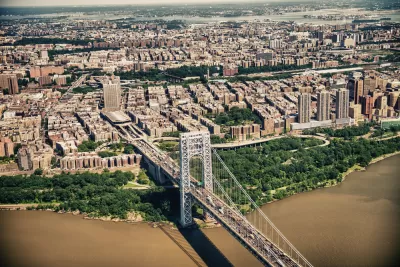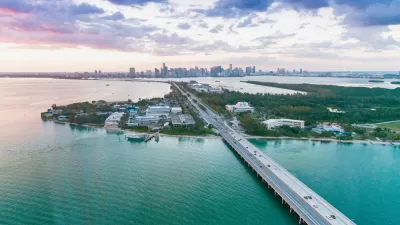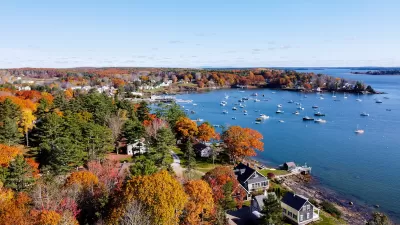Bloggers, pundits, authors, and researchers, have made the case for conservatives to embrace the effects of smart growth. Yet still, a distinctly partisan divide flavors the debate about how to make room for a growing number of Americans.

An article by Andrew Keatts digs into the question of why conservatives are resistant to the ideas of smart growth—despite a growing body of research and literature connecting the ideologies of conservative politics and smart growth.
The article follows a paper by Arizona State University professor Paul G. Lewis, titled "Moral Intuitions and Smart Growth: Why do Liberals and Conservatives View Compact Development so Differently [pdf]." Keatts explains one of the findings of Lewis's research: after controlling or race and income, "[s]imply being conservative made people 10 percent less likely to supporting urban development."
But why are conservatives so willing to ignore the expensive government policies and subsidies that enable sprawling development, such as the home mortgage interest deduction and highway construction? Lewis's paper argues that it's the result of "deep-seated, subconscious emotions."
That gut feeling, as it were, is in the realm of a field of study from social psychology known as "social intuitism." Keatts explains: "Essentially, liberals and conservatives are predisposed to certain flash judgments that they don’t recognize, then they rationalize explanations for their views."
The article also explains more about how Lewis's research makes an initial attempt to "demonstrate a connection between moral intuitionism and views on urban development" in the absence of a large-scale study.
FULL STORY: Why Urbanism Is Considered to be ‘Liberal’

Alabama: Trump Terminates Settlements for Black Communities Harmed By Raw Sewage
Trump deemed the landmark civil rights agreement “illegal DEI and environmental justice policy.”

Planetizen Federal Action Tracker
A weekly monitor of how Trump’s orders and actions are impacting planners and planning in America.

The 120 Year Old Tiny Home Villages That Sheltered San Francisco’s Earthquake Refugees
More than a century ago, San Francisco mobilized to house thousands of residents displaced by the 1906 earthquake. Could their strategy offer a model for the present?

Ken Jennings Launches Transit Web Series
The Jeopardy champ wants you to ride public transit.

BLM To Rescind Public Lands Rule
The change will downgrade conservation, once again putting federal land at risk for mining and other extractive uses.

Indy Neighborhood Group Builds Temporary Multi-Use Path
Community members, aided in part by funding from the city, repurposed a vehicle lane to create a protected bike and pedestrian path for the summer season.
Urban Design for Planners 1: Software Tools
This six-course series explores essential urban design concepts using open source software and equips planners with the tools they need to participate fully in the urban design process.
Planning for Universal Design
Learn the tools for implementing Universal Design in planning regulations.
Clanton & Associates, Inc.
Jessamine County Fiscal Court
Institute for Housing and Urban Development Studies (IHS)
City of Grandview
Harvard GSD Executive Education
Toledo-Lucas County Plan Commissions
Salt Lake City
NYU Wagner Graduate School of Public Service




























